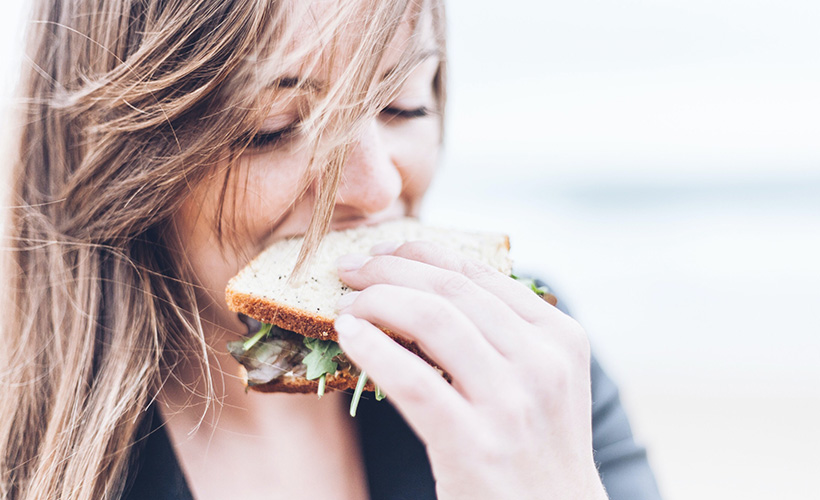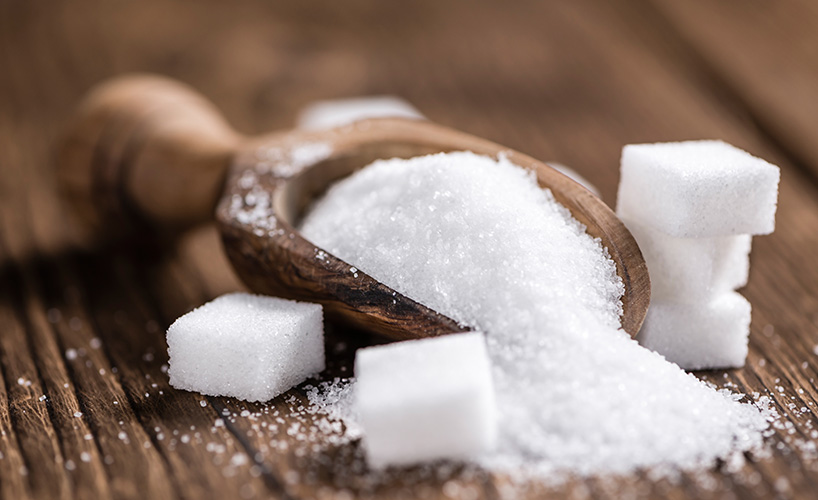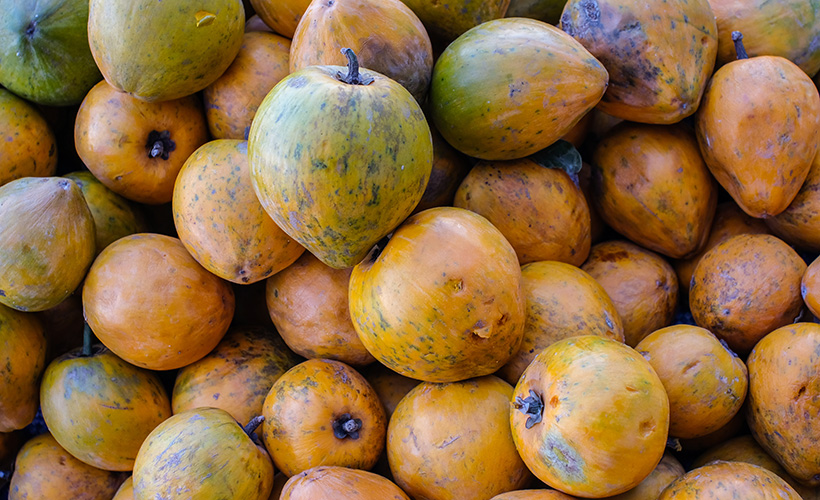Most of us in the Western world are lucky enough to have had some sort of education on the fundamentals of good nutrition. Ok, so maybe we don’t always eat our 5+ a day, and perhaps sugary treats sneak in more often than we’d care to admit, but on the whole, there’s a growing awareness out there on the importance of good nutrition. Below, I share some less commonly known nutritional tips to help you get the most from your food and, consequently, your life!
1. Chew your food 32 times
Chances are, the last time you had something to eat, you didn’t pay much (if any!) attention to how much you chewed…right?! That’s pretty normal, but the fact is, if you do pay attention to how much you chew, you’ll likely notice a significant improvement in your digestion. Chewing is the first step in the digestive process and is essential as it breaks down large particles of food into smaller particles that are easier to digest further along the digestive tract. Your saliva also contains crucial digestive enzymes that help make digestion easier on your stomach and intestines. So, the more you chew (ideally 32 times), the more exposure the food gets to these helpful enzymes. Digesting food requires a huge amount of energy from your body, so if you gulp your food down in a hurry and often feel fatigued, it’s well worth trying to implement this simple tip at mealtimes.
2. Avoid drinking water with meals
There’s a common misconception that sculling back a large glass of water before or with a meal can help us feel fuller or assist in digesting food. The truth is, we’re better to avoid large amounts of water at mealtimes. Why? Well, quite simply, it dilutes the natural digestive juices that our bodies produce to help with the optimal digestion of our food. The right amount of Hydrochloric acid in our stomachs is essential to break down food. Drinking water with meals can also impair your body’s ability to absorb the maximum amount of nutrients from food. It’s best to drink water half an hour before main meals or half an hour after eating. Of course, if you feel like occasionally sipping throughout a meal, that is fine! Just try to leave your main water consumption to between meals.
3. Never get too hungry
When we’re hungry, we’re more likely to make rushed and poor decisions regarding our diet. There’s no denying the primal urge to eat, and often, if we’re starving, we just want food fast. “Hi there, tempting bag of chips or packet of biscuits!” By being prepared with healthy on-the-go snacks and making sure you schedule the time to eat in your day, we can avoid binging on fast/unhealthy food when we can no longer ignore the hunger pangs. Try not to skip meals and don’t fall into the trap of thinking that fasting throughout the day aids in weight loss. Regular, moderate-sized, healthy meals are the trick!
4. Add a bit of spice to your meal
Ever wondered why there’s often a bowl of bright spices awaiting you as you pay at an Indian restaurant? Adding spices to your meal, or chewing on them after a meal, is believed to aid in healthy digestion. Traditionally, cardamom, fennel, cumin, coriander and ginger have been used to aid in digestion. Adding hot spices to your meal can also help trigger your brain to release feel-good endorphins.
5. Serve your food in the kitchen, not the table
Do you find you just can’t help but go for seconds when that succulent roast is sitting right in front of you at the table, willing you to reach over and grab more? If you find that you’re frequently tempted to eat beyond your full point, try serving a healthy-sized portion on the kitchen bench before taking it to the table to eat. Before you get up from your seat to get seconds, sit for a while and listen to your body and mind’s satiety signs. Are you actually full or are you just wanting to eat more for comfort? Tune into these sensations and feelings and only get back up to get more if you’re truly hungry. Having the food staring at you from within easy reach is always far more tempting, and having to get up to get it makes you more mindful of your choices.
6. Eat mindfully
Did you know that our digestive processes actually begin just by looking at or smelling our food? However, for many of us, our busy lives mean we’re distracted from truly observing and appreciating the food that fuels us. For example, it’s common practice for many of us to be doing at least one other thing while we’re eating. Scrolling the net, driving the car, walking to the bus…all while munching on something we’ve grabbed on the go. For optimal digestion and emotional/physical benefits from our food, it’s a good idea to try and become more mindful when we’re eating. Try to limit unnecessary distractions and tune into the tastes, textures and sensations of your food.
7. Take your time
Research suggests that those who frequently eat their food in a hurry often weigh more than slower eaters. This may be because it takes about 20 minutes for your stomach to send the message to your brain that you’re full and satisfied with what you have eaten. If you wolf down your meal in a rapid manner, it tempers our body’s satiety cues, and it is very easy to overeat. Try to slow down the rate you eat by implementing the tips above for chewing food more thoroughly and being more mindful when you eat. Eating on the run is the main reason we rush when eating, so try and schedule sit-down meal times into your day as much as you can.
8. Keep a food diary
Keeping a food diary can help you reflect on how certain foods make you feel, keeping track of your progress with health and weight goals, and seeing where there is room for improvement with your diet. Tracking your food doesn’t necessarily mean tracking calorie intake, but it should be more of a record of what you ate, followed by an overview of how you felt over the day. It doesn’t have to be something you regularly do, but if you feel like you’re operating on less than optimal, it’s an excellent way to see the correlations between what you’ve eaten and how you feel. Sometimes it can be a necessary shock to see that perhaps the days we feel more anxious are the days we unintentionally consumed three more coffees than usual! If you noticed particular patterns or correlations that concern you, it’s always best to speak with a trained nutrition professional for advice. Increased awareness with what and when you’re eating can help you reach your health and fitness goals.
9. Avoid Dieting
While being mindful of what we eat is important and healthy living is more popular than ever, dieting in the traditional sense of the word is dropping in the popularity stakes. Research has frequently shown that those who regularly go on diets usually put the weight back on it and don’t maintain the results achieved through dieting. Instead of ‘going on a diet’ for a period, try adopting a more sustainable long-term health plan that allows for indulgence on occasion rather than focusing on deprivation. Deprivation pit’s your mind against your primal instinct to eat, and so it can drive even the most determined person to have overwhelming cravings!
10. Enjoy eating
Although I’ve left it to last on my list, the most important tip of all is to enjoy eating! Food nourishes us and brings people together. It should be celebrated rather than feared or obsessed over. Enjoy eating well and enjoy the benefits of good health!


















Community